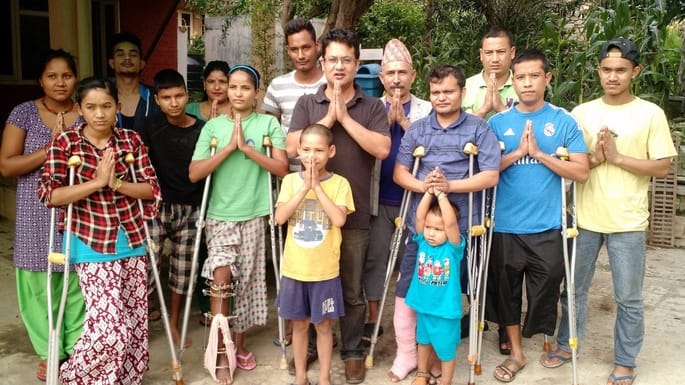
MeRO’s history: Medical Rehabilitation Organisation (MeRO) is a not-for-profit organisation founded by the most wonderful biomedical engineer in the whole wide world called Samrat. Before the 2015 earthquake, MeRO was called Nepal Healthcare Equipment Development Foundation and used to be a not-for-profit organisation recycling broken biomedical equipment and returning it to hospitals and individuals in working order (hence the name).
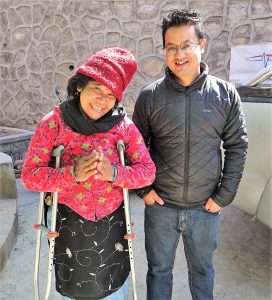 After the earthquake its primary focus changed to what it does now, but as the years went by, and the work showed no signs of dissipating, the organisation changed its name. and in January 2021, NHEDF became Medical Rehabilitation Organisation or MeRO for short.
After the earthquake its primary focus changed to what it does now, but as the years went by, and the work showed no signs of dissipating, the organisation changed its name. and in January 2021, NHEDF became Medical Rehabilitation Organisation or MeRO for short.
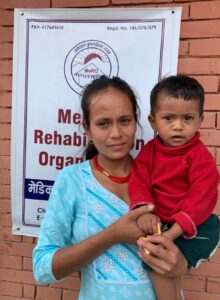 MeRO is registered with the Social Welfare Council (the Government body that is responsible for the regulation of charities in Nepal) (SWC Affiliation number 53349) and is subject to government regulations and requirements to promote good governance, accountability and transparency.
MeRO is registered with the Social Welfare Council (the Government body that is responsible for the regulation of charities in Nepal) (SWC Affiliation number 53349) and is subject to government regulations and requirements to promote good governance, accountability and transparency.
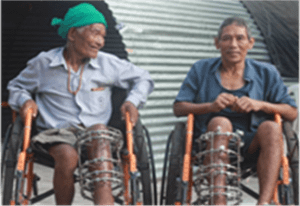 When the earthquake happened, MeRO’s premises evolved quickly into a medical shelter established for people being discharged from hospital way too early to make room for more. It was staffed by volunteer medical staff. Samrat thought the Shelter, as it came to be known, would only be needed
When the earthquake happened, MeRO’s premises evolved quickly into a medical shelter established for people being discharged from hospital way too early to make room for more. It was staffed by volunteer medical staff. Samrat thought the Shelter, as it came to be known, would only be needed 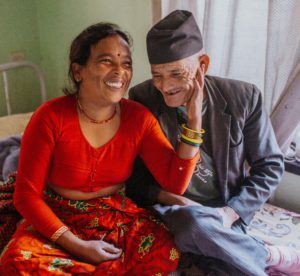 for 3 months or so, but over successive weeks, months and then years, patients simply kept coming. Initially people came with earthquake related injuries and then with trauma from other causes and then they began to accept people who were simply sick with a life-changing illness. To this day, MeRO still treats some people with earthquake-related injuries as many have injuries require ongoing medical treatment.
for 3 months or so, but over successive weeks, months and then years, patients simply kept coming. Initially people came with earthquake related injuries and then with trauma from other causes and then they began to accept people who were simply sick with a life-changing illness. To this day, MeRO still treats some people with earthquake-related injuries as many have injuries require ongoing medical treatment.
Everything always was, and always will be, completely free for their patients – medical treatment, food, accomodation, medications – everything.
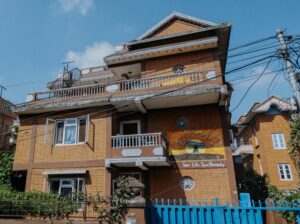 Where does MeRO operate: MeRO rents a multi-story building known as the Shelter in Kathmandu. This is a home-away- from-home for up to 20 patients and their care-givers, most of whom come from remote regions. Many are heavily in debt by the time they come to MeRO and all have no one else to turn to and nowhere else to go.
Where does MeRO operate: MeRO rents a multi-story building known as the Shelter in Kathmandu. This is a home-away- from-home for up to 20 patients and their care-givers, most of whom come from remote regions. Many are heavily in debt by the time they come to MeRO and all have no one else to turn to and nowhere else to go.
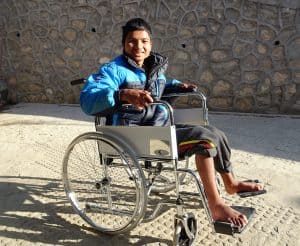 WHAT DOES MeRO DO? MeRO improves health outcomes by enabling access to health care using funds sourced through donations and grants, both locally and internationally. Both us and another organisation in the Netherlands called Stichting Care4Nepal help fund their work.
WHAT DOES MeRO DO? MeRO improves health outcomes by enabling access to health care using funds sourced through donations and grants, both locally and internationally. Both us and another organisation in the Netherlands called Stichting Care4Nepal help fund their work.
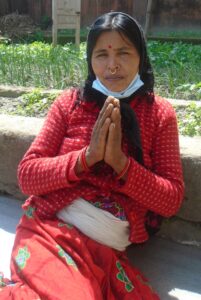 MeRO also operates a small project specifically for women with obstetric fistula. This work stalled during COVID, but three patients with obstetric fistula with complex care needs have been supported by funds provided by us.
MeRO also operates a small project specifically for women with obstetric fistula. This work stalled during COVID, but three patients with obstetric fistula with complex care needs have been supported by funds provided by us.
HOW DOES ROADS TO REHAB NEPAL SUPPORT MeRO?
We support MeRO’s work in many ways.
- Our Nurse and Physiotherapist Sponsorship Programs pay the wages of
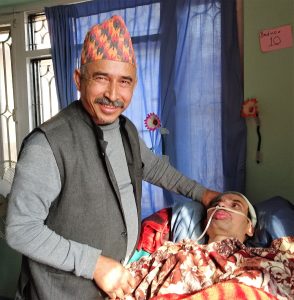 their four nurses and physiotherapist.
their four nurses and physiotherapist. - We fund as much as we can of their monthly pharmacy bill (usually $1000 a month – more if we can afford it) which provides patients with essential medications, medical equipment and supplies.
- We also provide the first $200 of medical costs for all patients admitted to the Shelter, and raise funds for additional medical costs as required.
- We help out with mentoring and promoting good governance,
- We facilitate ongoing professional development for clinical staff.
- We provide mentorship, support, advice and friendship.
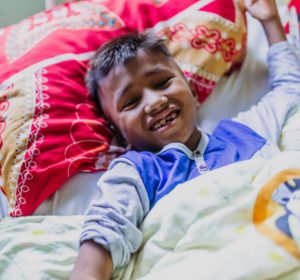 Since we started working with MeRO approximately 1000 patients of all ages, ethnic groups, religions, castes and gender have come through the doors of the Shelter, and their lives have been changed forever. Find us on Facebook for some special stories.
Since we started working with MeRO approximately 1000 patients of all ages, ethnic groups, religions, castes and gender have come through the doors of the Shelter, and their lives have been changed forever. Find us on Facebook for some special stories.
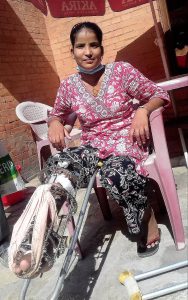
HOW DOES IT WORK? MeRO receives referrals from individuals or hospitals throughout Nepal. Patients who meet admission criteria either go directly to hospital, or to the Shelter, or are transferred there after a hospital stay. A multi-disciplinary team, including four full-time nurses and a physiotherapist provide around the clock nursing care, physiotherapy and rehabilitation services in a professional, nurturing, supportive caring family environment. Patients stay at the Shelter for as long as necessary.
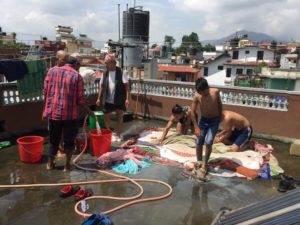 MeRO employs a security guard and a part-time cook. Each patient is required to be accompanied by a care-giver, usually a family member to attend their personal care, as is customary in Nepal.
MeRO employs a security guard and a part-time cook. Each patient is required to be accompanied by a care-giver, usually a family member to attend their personal care, as is customary in Nepal.
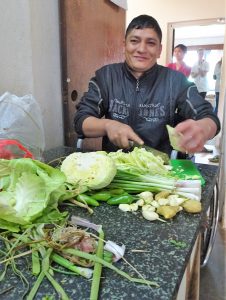 Patients care-givers, and patients themselves, when they are able, look after all the practical aspects of the Shelter – cooking, cleaning, shopping, gardening, laundry etc leaving Samrat to advocate for them and negotiate the many challenges of coordinating patient care within an expensive, complex and sometimes corrupt medical system.
Patients care-givers, and patients themselves, when they are able, look after all the practical aspects of the Shelter – cooking, cleaning, shopping, gardening, laundry etc leaving Samrat to advocate for them and negotiate the many challenges of coordinating patient care within an expensive, complex and sometimes corrupt medical system.
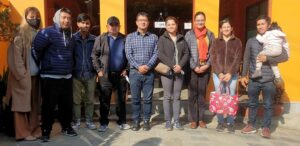 The Shelter is run by a Board of 9 multi-talented Members who do an amazing job. They are assisted by four Volunteers whose support is absolutely invaluable.
The Shelter is run by a Board of 9 multi-talented Members who do an amazing job. They are assisted by four Volunteers whose support is absolutely invaluable.
